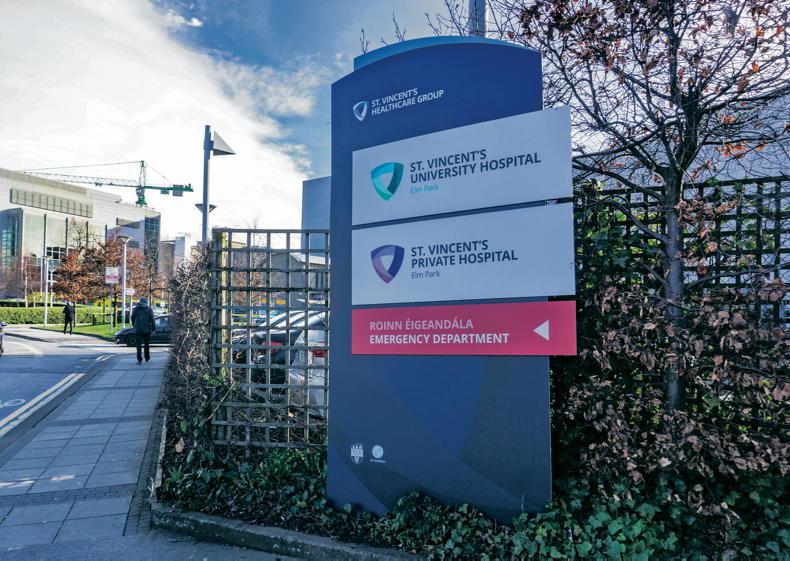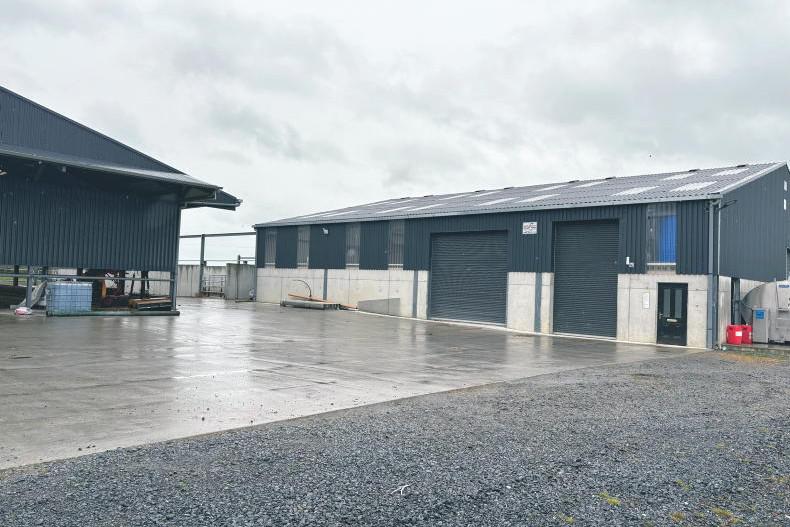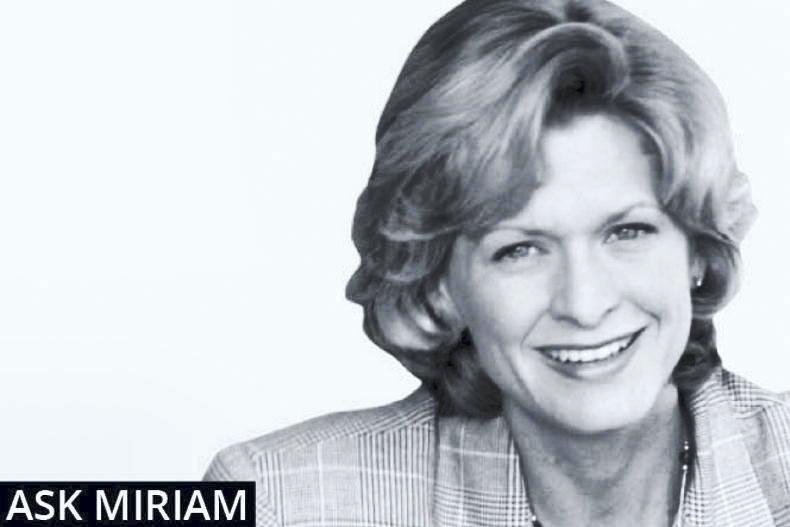Forking out for car parking costs at hospitals can seriously hit your pocket – and add to the stress of illness.
With hospitals charging between €4 and €9 for the average four-hour car park stay, service users can find themselves under pressure to find this money on top of costs like fuel and snacks while away, not to mention paying childminders at home, if needed, at a time of crisis.
Irish Country Living have previously reported on hospital parking fees, in 2018 and also in May 2024. While there were no major increases and some reductions in that six-year period, the promise by then-Minister for Health, Simon Harris in 2020 of a cap of €10 per day on car park charges at all hospitals had not come to pass. It still hasn’t.
A planned working group that will decide what long-term patients should qualify for free parking has yet to do its work also.
When it comes to concerns about the impact parking costs have on people who have to attend hospitals frequently, we’re not alone.
Organisations like the Irish Patients’ Association and the Irish Cancer Society have long been battling for a reduction in car parking charges because of the detrimental financial impact they are having on those attending hospital regularly. A tax on being sick – that’s what it has been dubbed.
For rural people visiting relatives or attending an outpatient department (for one to four hours), the average parking fee is around €5. That’s substantially lower than the charge in Dublin for the same period – €8.86 on average – but it is still a lot of money, especially if a family member is very sick or dying, and loved ones are in and out for long visits.
In light of the fact that hospitals take in a lot of income from parking, we wanted to find out, on your behalf, exactly how much – and what that money is being spent on.
Through the Freedom of Information (FOI) Act, Irish Country Living requested information around car parking charges from 37 hospitals – (23 HSE acute and 14 voluntary). See the results below.
Top three
Cork University Hospital took in the most money from parking in 2023 – €2.2m. Cork University Maternity Hospital which is on the same site took in a further €245,705.
This is followed by St Vincent’s University Hospital, Dublin with €2.04m. St James’s Hospital, Dublin was next with €1.6m. This isn’t surprising given that these are three of the biggest hospitals in the country, but it still represents a huge income for them.
Of the more provincial HSE-run hospitals, University Hospital Kerry (Tralee) had the highest income from car parking, bringing in a total of €497,397 – again, a significant sum.
Naas General Hospital brought in the lowest income at €38, 697 although machines were out of order for most of that year. Ahead of that was Wexford General Hospital at €59,000.
The total income that flowed from car parking charges for all these hospitals in 2023, therefore, was almost €16m (€15.721m).
We also asked for figures for the period January-June 2024, but only 17 of the hospitals provided these.
In that six-month period, income figures that were provided were all over half the total 2023 figure, suggesting that total income figures for 2024 will be greater again.
So what was the money spent on?
Twenty-three of the hospitals said that they use the money towards “overall expenditure incurred in the operating of the hospital” or that “all monies go back into the (hospital) account”.
One HSE response from an FOI decision maker representing hospitals in the west said that the money is “an important stream of funding for hospitals to ensure continued provision of services and for the upkeep of our facilities”.
Car park charges were introduced to ensure that the cost of the provision of services was not taken out of a hospital’s operating budget.
All this suggests that some hospitals are not getting enough in basic funding from the HSE.
The Midland Regional Hospital Portlaoise FOI decision maker said that “the car park income forms part of the annual budget targets set by the HSE”.
Targets, we questioned? What did he mean?
The FOI contact person representing the south/southwest hospital groups qualified each amount mentioned with the words “for which there is a national target”. That word “target” again.
Our understanding is that this means hospitals estimate, at the beginning of each year, how much money they are going to take in from car parking. This estimated figure is then deducted from their total HSE funding for that year.
“As part of the budget process, where we earn income, we only receive funding net of that income,” the FOI contact for the west said.
“A budget target is applied from national HSE for patient income, shop rental, car park etc, therefore to remain within budget we have to earn that income.”
So hospitals aren’t really keeping the profit from car parking for extras – it is going on day-to-day running costs. It could be argued that this is similar to schools relying on ‘voluntary’ contributions by parents to pay the bills because capitation grants from the department simply aren’t enough.
In short, it seems patients are paying taxes for the running of hospitals but are also paying through car park charges. The HSE’s answer, when we asked for confirmation of this, was not straightforward.
Not exactly clear…
“The parameters for the HSE budget are set out in the annual letter of determination issued by the Department of Health,” a statement read.
“In general, the income budget for hospitals – which includes car park income – is rolled forward from the previous year’s budget and adjusted for any specific requirements as set out in the letter of determination.
“Hospitals introduced car parking charges over the past decade or so, to cover such services’ costs without impacting the hospitals’ budget for patient services,” the statement continued.
We will analyse these costs in more detail in next week’s issue.
Looking at all this begs the question: is it right that hospitals are so reliant on car park income to keep going? Are the service users, in reality, propping up – subsidising – the hospital’s income when we pop coins into those pay machines because the HSE isn’t providing them with enough funding to function?
In some parts of the UK where the NHS has a policy of providing free parking for frequent outpatient visitors and relatives of those who are gravely ill
The health service appears to be a black hole when it comes to revenue. Despite so many dedicated people working within it, overall management seems to be constantly in question.
Surely there is an argument for hospital car parks being run on a not-for-profit basis, meaning that users would only pay a minimal amount.
Yes, we know that things like land and tarmacadam and line-marking and pay meters cost money and the expenses would have to be worked out, but after that is done, shouldn’t there be a minimal standardised daily charge?
For example, Midland Regional Hospital Portlaoise and St Luke’s General Hospital, Kilkenny charge €3 and €4 per stay respectively, with the first 30 minutes free, which helps people who are dropping friends or family to the hospital.
Furthermore, there is a case to be made for free parking for regular users.
This happens already in some parts of the UK where the NHS has a policy of providing free parking for frequent outpatient visitors, parents of children staying overnight, carers, and relatives of those who are gravely ill.
That kind of policy is being mooted here but it remains to be seen how long it will take the working group set up by the minister four years ago to work all that out.
Has it been set up since our article last May? No, the HSE replied. “Due to the establishment of the six new Health Regions, which includes the reconfiguration of functions and governance within the HSE, the proposed working group is not yet established,” they said.
Of the hospitals that returned figures for 2023, eight did not provide any figures for income from car parking in the first six months of 2024. The remaining 17 did.Did hospitals take in more in the first half of 2024? In order to estimate any increased income between the two years – all of 2023 and the first half of 2024 – we divided the total income from car parking in 2023 by two to get an idea of what may have come in, in January-June 2023. We then compared that figure with the one given for January-June 2024. We found that Mayo University Hospital had the highest percentage increase (32%), St Vincent’s Hospital, Dublin had the second highest (21%) and the Midland Regional Hospital Portlaoise third with a 20% increase. The Rotunda hospital had the lowest increase with 0.4%.Advocates call for an end to ‘unjust levy’ causing a burden
As it stands there is no standardised approach to hospital parking and a lack of consistency in what cancer patients can expect to pay while they attend tests and treatment.
We talk to long-time campaigners Stephen McMahon, chairman of the Irish Patient’s Association (IPA) and Steve Dempsey, director of advocacy at the Irish Cancer Sociery (ICS).
Stephen McMahon, chairman, IPA

Stephen McMahon, chairman of IPA.
Stephen McMahon, chairman and co-founder of the Irish Patients’ Association has been campaigning against hospital parking charges for nearly two decades. He calls these parking charges, “a tax on illness that won’t go away”.
“These charges have become a relentless financial burden on patients, their families and other visitors,” he says. “There is still a lack of transparency, inconsistent reporting, and a systemic reliance on this ‘outsourced tax’ to plug hospital funding gaps, despite eye-watering increases in HSE funding.”
Looking at our figures, he was able to contrast them with figures from a decade ago.
• 2013: €11.732m (figure from Irish Patients’ records based on the same number of hospitals we profiled)
• 2023: €15.721m (Irish Country Living figures)
“These charges have become a relentless financial burden on patients, their families and other visitors. Yet, despite revenues increasing over the past decade, the same issues persist: a lack of transparency, inconsistent reporting, and a systemic reliance on this ‘outsourced tax’ to plug hospital funding gaps, despite eye-watering increases in HSE funding,” Stephen says.
Looking at our figures he noted that some hospitals cannot provide how much income they have received in the half year to 2024 or even account for where the money goes.
“This reflects ongoing failures in information systems – a problem the IPA flagged long ago. Meanwhile, the Government remains silent on any plan to end this unjust levy on the sick. This year, 2025 is a time for action on this tax on illness: timely and transparent reporting, exemptions for vulnerable patients, and a funding model that doesn’t rely on an indirect tax on illness,” he says.
Steve Dempsey, director of advocacy, ICS

Steve Dempsey, director of advocacy, Irish Cancer Society.
The Irish Cancer Society is calling for the total abolition of hospital car parking charges.
“We know that many hospitals across Ireland are hitting cancer patients with the full cost of car parking charges, bringing additional financial pressure at an already incredibly difficult time,” says Steve Dempsey of the Irish Cancer Society.
“Although some hospitals treating cancer patients have some sort of concession in place, it’s not enough.
“We acknowledge that car parking charges are an important income stream for many hospitals, and this is why we’re asking for the issue to be solved at a Government level and are calling for the total abolition of hospital car parking charges.”
Irish Country Living is running a petition online to cap hospital car park charges. Scan this QR code to sign and/or leave a comment. We will present our findings to government.

Next week part two: Who runs the car parks, what are maintenance costs and which hospitals provide free parking for staff?
Forking out for car parking costs at hospitals can seriously hit your pocket – and add to the stress of illness.
With hospitals charging between €4 and €9 for the average four-hour car park stay, service users can find themselves under pressure to find this money on top of costs like fuel and snacks while away, not to mention paying childminders at home, if needed, at a time of crisis.
Irish Country Living have previously reported on hospital parking fees, in 2018 and also in May 2024. While there were no major increases and some reductions in that six-year period, the promise by then-Minister for Health, Simon Harris in 2020 of a cap of €10 per day on car park charges at all hospitals had not come to pass. It still hasn’t.
A planned working group that will decide what long-term patients should qualify for free parking has yet to do its work also.
When it comes to concerns about the impact parking costs have on people who have to attend hospitals frequently, we’re not alone.
Organisations like the Irish Patients’ Association and the Irish Cancer Society have long been battling for a reduction in car parking charges because of the detrimental financial impact they are having on those attending hospital regularly. A tax on being sick – that’s what it has been dubbed.
For rural people visiting relatives or attending an outpatient department (for one to four hours), the average parking fee is around €5. That’s substantially lower than the charge in Dublin for the same period – €8.86 on average – but it is still a lot of money, especially if a family member is very sick or dying, and loved ones are in and out for long visits.
In light of the fact that hospitals take in a lot of income from parking, we wanted to find out, on your behalf, exactly how much – and what that money is being spent on.
Through the Freedom of Information (FOI) Act, Irish Country Living requested information around car parking charges from 37 hospitals – (23 HSE acute and 14 voluntary). See the results below.
Top three
Cork University Hospital took in the most money from parking in 2023 – €2.2m. Cork University Maternity Hospital which is on the same site took in a further €245,705.
This is followed by St Vincent’s University Hospital, Dublin with €2.04m. St James’s Hospital, Dublin was next with €1.6m. This isn’t surprising given that these are three of the biggest hospitals in the country, but it still represents a huge income for them.
Of the more provincial HSE-run hospitals, University Hospital Kerry (Tralee) had the highest income from car parking, bringing in a total of €497,397 – again, a significant sum.
Naas General Hospital brought in the lowest income at €38, 697 although machines were out of order for most of that year. Ahead of that was Wexford General Hospital at €59,000.
The total income that flowed from car parking charges for all these hospitals in 2023, therefore, was almost €16m (€15.721m).
We also asked for figures for the period January-June 2024, but only 17 of the hospitals provided these.
In that six-month period, income figures that were provided were all over half the total 2023 figure, suggesting that total income figures for 2024 will be greater again.
So what was the money spent on?
Twenty-three of the hospitals said that they use the money towards “overall expenditure incurred in the operating of the hospital” or that “all monies go back into the (hospital) account”.
One HSE response from an FOI decision maker representing hospitals in the west said that the money is “an important stream of funding for hospitals to ensure continued provision of services and for the upkeep of our facilities”.
Car park charges were introduced to ensure that the cost of the provision of services was not taken out of a hospital’s operating budget.
All this suggests that some hospitals are not getting enough in basic funding from the HSE.
The Midland Regional Hospital Portlaoise FOI decision maker said that “the car park income forms part of the annual budget targets set by the HSE”.
Targets, we questioned? What did he mean?
The FOI contact person representing the south/southwest hospital groups qualified each amount mentioned with the words “for which there is a national target”. That word “target” again.
Our understanding is that this means hospitals estimate, at the beginning of each year, how much money they are going to take in from car parking. This estimated figure is then deducted from their total HSE funding for that year.
“As part of the budget process, where we earn income, we only receive funding net of that income,” the FOI contact for the west said.
“A budget target is applied from national HSE for patient income, shop rental, car park etc, therefore to remain within budget we have to earn that income.”
So hospitals aren’t really keeping the profit from car parking for extras – it is going on day-to-day running costs. It could be argued that this is similar to schools relying on ‘voluntary’ contributions by parents to pay the bills because capitation grants from the department simply aren’t enough.
In short, it seems patients are paying taxes for the running of hospitals but are also paying through car park charges. The HSE’s answer, when we asked for confirmation of this, was not straightforward.
Not exactly clear…
“The parameters for the HSE budget are set out in the annual letter of determination issued by the Department of Health,” a statement read.
“In general, the income budget for hospitals – which includes car park income – is rolled forward from the previous year’s budget and adjusted for any specific requirements as set out in the letter of determination.
“Hospitals introduced car parking charges over the past decade or so, to cover such services’ costs without impacting the hospitals’ budget for patient services,” the statement continued.
We will analyse these costs in more detail in next week’s issue.
Looking at all this begs the question: is it right that hospitals are so reliant on car park income to keep going? Are the service users, in reality, propping up – subsidising – the hospital’s income when we pop coins into those pay machines because the HSE isn’t providing them with enough funding to function?
In some parts of the UK where the NHS has a policy of providing free parking for frequent outpatient visitors and relatives of those who are gravely ill
The health service appears to be a black hole when it comes to revenue. Despite so many dedicated people working within it, overall management seems to be constantly in question.
Surely there is an argument for hospital car parks being run on a not-for-profit basis, meaning that users would only pay a minimal amount.
Yes, we know that things like land and tarmacadam and line-marking and pay meters cost money and the expenses would have to be worked out, but after that is done, shouldn’t there be a minimal standardised daily charge?
For example, Midland Regional Hospital Portlaoise and St Luke’s General Hospital, Kilkenny charge €3 and €4 per stay respectively, with the first 30 minutes free, which helps people who are dropping friends or family to the hospital.
Furthermore, there is a case to be made for free parking for regular users.
This happens already in some parts of the UK where the NHS has a policy of providing free parking for frequent outpatient visitors, parents of children staying overnight, carers, and relatives of those who are gravely ill.
That kind of policy is being mooted here but it remains to be seen how long it will take the working group set up by the minister four years ago to work all that out.
Has it been set up since our article last May? No, the HSE replied. “Due to the establishment of the six new Health Regions, which includes the reconfiguration of functions and governance within the HSE, the proposed working group is not yet established,” they said.
Of the hospitals that returned figures for 2023, eight did not provide any figures for income from car parking in the first six months of 2024. The remaining 17 did.Did hospitals take in more in the first half of 2024? In order to estimate any increased income between the two years – all of 2023 and the first half of 2024 – we divided the total income from car parking in 2023 by two to get an idea of what may have come in, in January-June 2023. We then compared that figure with the one given for January-June 2024. We found that Mayo University Hospital had the highest percentage increase (32%), St Vincent’s Hospital, Dublin had the second highest (21%) and the Midland Regional Hospital Portlaoise third with a 20% increase. The Rotunda hospital had the lowest increase with 0.4%.Advocates call for an end to ‘unjust levy’ causing a burden
As it stands there is no standardised approach to hospital parking and a lack of consistency in what cancer patients can expect to pay while they attend tests and treatment.
We talk to long-time campaigners Stephen McMahon, chairman of the Irish Patient’s Association (IPA) and Steve Dempsey, director of advocacy at the Irish Cancer Sociery (ICS).
Stephen McMahon, chairman, IPA

Stephen McMahon, chairman of IPA.
Stephen McMahon, chairman and co-founder of the Irish Patients’ Association has been campaigning against hospital parking charges for nearly two decades. He calls these parking charges, “a tax on illness that won’t go away”.
“These charges have become a relentless financial burden on patients, their families and other visitors,” he says. “There is still a lack of transparency, inconsistent reporting, and a systemic reliance on this ‘outsourced tax’ to plug hospital funding gaps, despite eye-watering increases in HSE funding.”
Looking at our figures, he was able to contrast them with figures from a decade ago.
• 2013: €11.732m (figure from Irish Patients’ records based on the same number of hospitals we profiled)
• 2023: €15.721m (Irish Country Living figures)
“These charges have become a relentless financial burden on patients, their families and other visitors. Yet, despite revenues increasing over the past decade, the same issues persist: a lack of transparency, inconsistent reporting, and a systemic reliance on this ‘outsourced tax’ to plug hospital funding gaps, despite eye-watering increases in HSE funding,” Stephen says.
Looking at our figures he noted that some hospitals cannot provide how much income they have received in the half year to 2024 or even account for where the money goes.
“This reflects ongoing failures in information systems – a problem the IPA flagged long ago. Meanwhile, the Government remains silent on any plan to end this unjust levy on the sick. This year, 2025 is a time for action on this tax on illness: timely and transparent reporting, exemptions for vulnerable patients, and a funding model that doesn’t rely on an indirect tax on illness,” he says.
Steve Dempsey, director of advocacy, ICS

Steve Dempsey, director of advocacy, Irish Cancer Society.
The Irish Cancer Society is calling for the total abolition of hospital car parking charges.
“We know that many hospitals across Ireland are hitting cancer patients with the full cost of car parking charges, bringing additional financial pressure at an already incredibly difficult time,” says Steve Dempsey of the Irish Cancer Society.
“Although some hospitals treating cancer patients have some sort of concession in place, it’s not enough.
“We acknowledge that car parking charges are an important income stream for many hospitals, and this is why we’re asking for the issue to be solved at a Government level and are calling for the total abolition of hospital car parking charges.”
Irish Country Living is running a petition online to cap hospital car park charges. Scan this QR code to sign and/or leave a comment. We will present our findings to government.

Next week part two: Who runs the car parks, what are maintenance costs and which hospitals provide free parking for staff?












SHARING OPTIONS